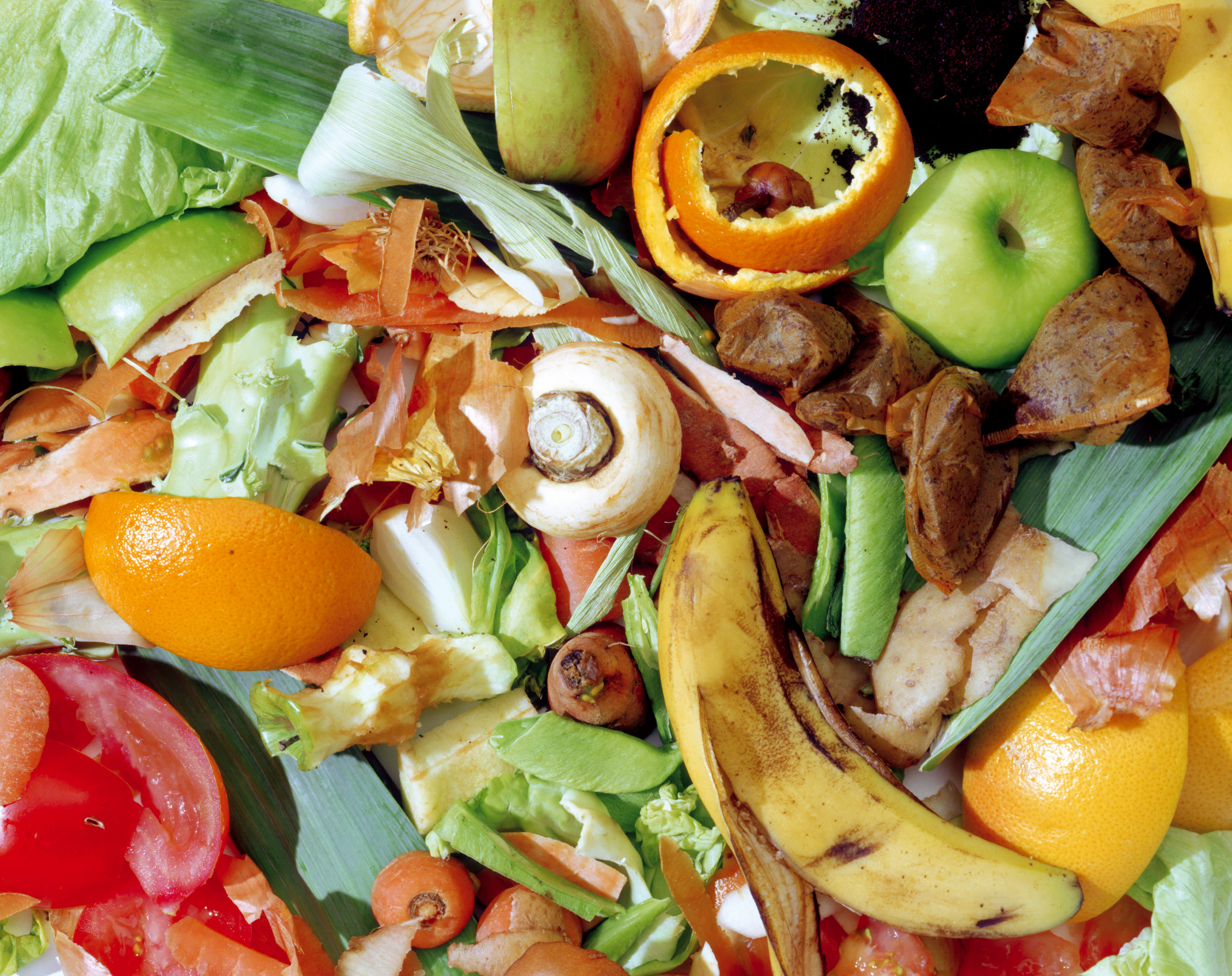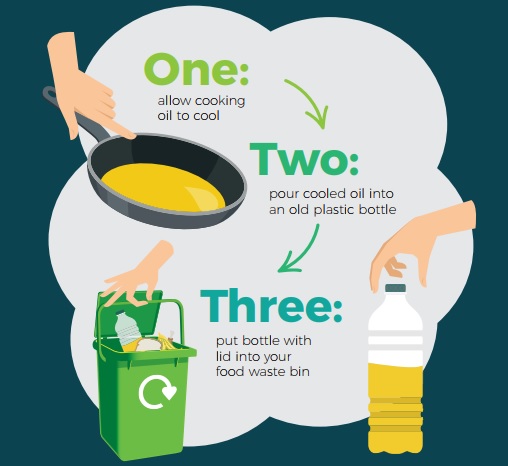
Your food caddy
Your food is collected every week. Use your small kitchen caddy to collect your food scraps each day and then transfer them into your larger outdoor caddy which we’ll empty each week.
What can I put in my food recycling caddy?
All your raw and cooked food waste such as leftovers and spoilt food, and including:
- meat and fish – raw and cooked including bones
- all dairy products such as cheese and eggs
- raw and cooked vegetables and fruit
- bread, cakes and pastries
- rice, pasta and beans
- uneaten food from your plates and dishes
- tea bags and coffee grounds
- cooking oil, lard and fats (can be placed in a plastic bottle inside or beside the caddy – please see below)
Lining your food recycling caddy
Food waste for recycling can be put into your food waste bin loose, wrapped in a couple of sheets of newspaper, or in plastic (e.g. carrier bags, pedal bin liners, bread bags) or compostable liners. Please do not use black bags.
Cooking oil
We can now collect cooking oil placed in a plastic bottle (no bigger than 1 litre) from inside your food recycling caddy. If it does not fit inside your caddy you can place it next to your caddy. We will only collect from plastic bottles and will not accept oil in glass bottles/jars or any other container.

Please don’t put food packaging into your food recycling caddy!
Please don’t put any food packaging (including compostable packaging) into your caddy unless it is being used as a liner. Biodegradable and compostable products require oxygen to break down so they would not work in our process. If we accepted compostable and biodegradable packaging it would contaminate the fertiliser and it wouldn’t be safe to use.
What happens to your food waste
Food waste is taken to an Anaerobic Digestion facility in Benson near Wallingford where it is turned into energy to power 4,800 homes. It takes 85 days for the food waste to break down and at the end of the process it is sold onto local farmers as a nutrient-rich fertiliser.
To find out more, visit our page on What happens to – your food waste.
Contact us - Biffa
03000 610610
(Text phone users add 18001 before dialing)
c/o South Oxfordshire District Council
Abbey House
Abbey Close
Abingdon
OX14 3JE

